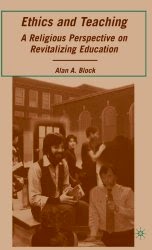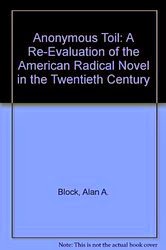In the new streaming film
Good Grief, the main character, Marc, says after his husband dies in an auto accident, that he is lonely and that he doesn’t want to be alone. I’ve been thinking lately about the experiences of being alone and being lonely. Marc’s grievance notwithstanding, the two states, though often used interchangeably, do not seem to be equivalent. D.W. Winnicott says, almost paradoxically, that one can only be truly alone when in the presence of another. For Winnicott the capacity to be alone signifies the capacity to relax, to be at individual ease, without having to be obliged to react to any external impingement or that of an introjected or even physically present person. In this alone state the individual becomes unintegrated—which for Winnicott signifies a state without purpose, a “state in which there is no orientation.” Unintegration and not
disintegration, is a mode of being where the self is neither “a reactor to an external impingement,” nor subject to compliance or resistance from another’s interest or movement. To be thus unintegrated, one can have an
id experience, which I understand to be the experience of inarticulable Desire before that Desire must enter language or confront the external world. Reality is always a disappointment. But during this
id experience nothing external impinges on the individual, and the internal feels real and authentic. This is the experience of the true self that may not be communicated with but demands to be seen. This
id experience is the source of creativity. The narrator in W.G. Sebald’s
The Rings of Saturn says, “Perhaps we all lose our sense of reality to the precise degree to which we are engrossed in our own work.” In this state the child and later the adult is completely alone.
However, the child and later the adult can enjoy this state of being alone only if an earlier experience of a protective environment had been provided by the good enough mother or mother-object. In this protective environment the individual may enjoy with confidence the state of unintegration and experience their internal feelings, their Desire. Winnicott says, “[S]uch an experience provides the individual a sufficiency of living, so that the individual temporarily . . . is able to rest contented in the absence of the presence of external objects or stimuli.” To enjoy the state of being alone then, the individual must first have developed a belief in a benign external environment gained through a repetition of satisfactory episodes of unintegration and the resultant pleasures of instinctual gratifications when in company with a good enough mother or mother-object. To be able to say
I AM ALONE becomes possible when there is an awareness of and faith in the continual presence of a protective environment which makes it possible for the child and later for the adult to be alone: to become unintegrated. That protective presence is at first actual but later can be enjoyed without that presence being actual. I believe that this is the source state of creativity; all that is yet requited are objects in the world with which the individual might use.
I enjoy my solitude and begin to recognize that I can feel most alone when I am writing whether I am in in the presence of actual company or not. As I write this now, I am alone. I am content. Unintegration is for me a briefly experienced state but a very satisfying one.
I think that loneliness is a very different experience than that of being alone. Loneliness might actually constitute an inability to be alone, to be I AM. Loneliness, unlike being alone, requires, even demands, the presence of another but this encounter must be ultimately unsatisfying because in the anxiety of self, the lonely person cannot fully enter the encounter.; the lonely person is too well defended to risk the vulnerability of the self. In A Year of the Death of Ricardo Reis, the poet Pessoa says, “loneliness is the inability to keep someone or something with us company, it is not a tree that stands alone in the middle of a plain but the distance between the deep sap and the bark, between the leaves and the roots.” Loneliness is the distance between the source of life—our Desire—and the transient and inevitably compromised products that derives from it and its encounters with the objects of this world. Loneliness is the space between the outside and the inside, between the blood and what covers it, between the source of life and what comes out because of the roots.
Loneliness inheres in the meaningless work and empty relationships in which there can occur no engagement. In Good Grief Marc is lonely: he has friends to whom he cannot tell the truth of his loss. Loneliness occurs when the Winnicottian false self is so protective of the true self that one has no sense of or contact with that self; the objects of the world have no meaning. The False Self has had for its main concern a search for conditions that will make it possible for the True Self to come into its own. But if such conditions cannot be found then the False Self must create defenses to protect the True Self: drugs, drink, sex, smart phones and streaming services and myriad other protective devices. And when the true self comes to doubt that such conditions by which it can be found, then, Winnicott warns, suicide might be the result. Suicide is annihilation of all self to protect the True Self. It becomes the function of the False Self to organize the suicide. Or the false self develops external identifications, such as that of a nannie, parent, or some other relationship; this false self conforms to the personality of another and masks the true self. Rosa Burger’s struggle in Nadine Gordimer’s Burger’s Daughter is to become a self other than that of being Burger’s daughter.
In To Write As If Already Dead Kate Zambreno says, “I like the notion that the word persona stems from Stoics theater where the actor held a mask at a distance, a gap occurs between the self and the persona.” That mask allows the self to safely speak and to remain alone. A persona is a strategic mask of identity held in public: the persona is the public image of one's person, the presentation of the social role that one adopts, or the mask may be simply a fictional character. In Russel Banks Foregone, as he tells his story Fife demands darkness because if he can see another he will maintain the lie that is his life. He needs the camera and the microphone and the darkness. He won’t allow anybody to look at him. “The only way Fife knows how to tell the truth is to sit himself in darkness like this in front of the camera . . . without the darkness surrounding him, he would lie to her, the way he lies to everyone.” An entry from WordPress describes a function of the mask: “Any one actor might hold different masks for different roles, thus preventing the audience from identifying the actor to one specific character.” The mask would hide character at the same time it displayed it, though the revelation was in the service of role. The mask might also be considered "an intermediary between the individual and the institution." At the university I chose to wear a tie in the classroom to honor the profession though the necktie was constricting, uncomfortable and uncharacteristic. I suppose one can speak from behind the mask but then the question might occur as to who is speaking.
So, though Marc spends time and travel with his friends, he remains lonely and is also incapable of being alone. It is perhaps through the arc of the film that Marc gains the capacity to be alone—he returns to his painting and the production of art—and he no longer defines himself as lonely. He is in the end in the comforting company of his friends. He can be alone.












